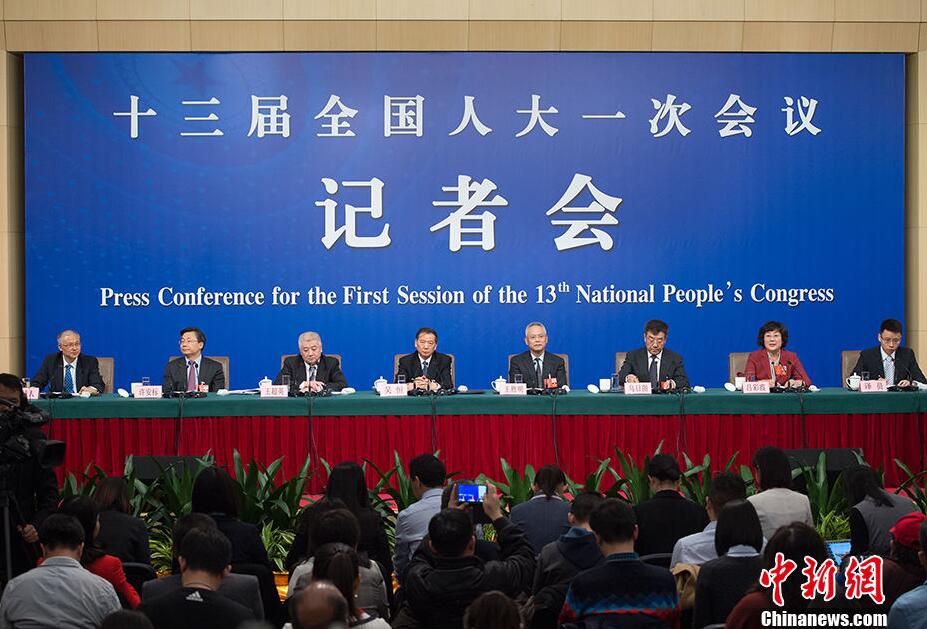
1. The five functions of the operating system are processor management, memory management, device management, file management and job management. Processor management The most basic function of processor management is to process interrupt events. After configuring the operating system, various events can be processed.
2. The main function of the computer operating system is process management, and its work is mainly process scheduling. In the case of a single user and a single taskNext, the processor is only monopolized by one user's task, and the process management work is very simple.
3. Operating System (abbreviation: OS) is a group of interrelated system software programs that supervise and control computer operation, use and run hardware, software resources and provide public services to organize user interaction.
4. Five major management functions of the operating system: (1) Job management: including tasks, interface management, human-computer interaction, graphical interface, voice control and virtual reality, etc. ( 2) File management: also known as information management. ( 3) Storage management: The essence is the management of storage "space", which mainly refers to the management of the main memory.
Any information system has five basic functions, namely: information collection and recording (input); information storage; information processing; information transmission; information output .
According to the functional introduction of the information system, the information system has five basic functions: input, storage, processing, output and control. Different functions have different functions, such as input function: the input function of the information system is determined by the purpose to be achieved by the system, the ability of the system and the permission of the information environment.
Five basic functions of the information system: input, storage, processing, output and control. Input function: The input function of the information system is determined by the purpose to be achieved by the system, the ability of the system and the permission of the information environment.Storage function: Storage function refers to the ability of the system to store various information and data. Mainly including: statistical functions.
The operating system has five functions: processor management: mainly controls and manages the work of the CPU. Storage management: mainly allocate and manage memory. Device management: mainly manage basic input and output devices. File management: responsible for the organization, storage, operation and protection of computer files.
The functions of the computer operating system include: processor management, memory management, device management, file management, job management and other functional modules. Processor management. The most basic function of processor management is to handle interrupt events. The processor can only detect interrupt events and generate interrupts and cannot process them.
The main function of the computer operating system is process management, and its main work is process scheduling. In the case of a single user and a single task, the processor is only monopolized by one user's task, and the work of process management is very simple.
The main functions of the operating system are process and processor management, job management, storage management, device management and file management, as follows: process and processor management. Because the execution of the program must rely on the processor, only one program flow can be processed and executed at any time. Homework management.
I) Processor management The most basic function of processor management is to handle interrupt events. The processor can only detect interrupt events and generate interrupts, and cannot handle these interrupt events. After configuring the operating system, all types of events can be handled.Another function of processor management is processor scheduling.
Five management functions of the operating system: job management: including tasks, interface management, human-computer interaction, graphical interface, voice control and virtual reality, etc. File management: also known as information management. Storage management: The essence is the management of storage "space", which mainly refers to the management of the main memory.

The storage management function of the operating system is to manage memory resources. It mainly realizes memory allocation and recovery, storage protection and memory expansion. The device management of the device management operating system is responsible for allocating and recycling external devices, and controlling external devices to operate according to the requirements of user programs.
The functions of the computer operating system include: processor management, memory management, device management, file management, job management and other functional modules. Processor management. The most basic function of processor management is to handle interrupt events. The processor can only detect interrupt events and generate interrupts and cannot process them.
The five functions of the operating system are processor management, memory management, device management, file management and job management.Processor management The most basic function of processor management is to process interrupt events. After configuring the operating system, various events can be processed.
Free sports events uefa champions league app android-APP, download it now, new users will receive a novice gift pack.
1. The five functions of the operating system are processor management, memory management, device management, file management and job management. Processor management The most basic function of processor management is to process interrupt events. After configuring the operating system, various events can be processed.
2. The main function of the computer operating system is process management, and its work is mainly process scheduling. In the case of a single user and a single taskNext, the processor is only monopolized by one user's task, and the process management work is very simple.
3. Operating System (abbreviation: OS) is a group of interrelated system software programs that supervise and control computer operation, use and run hardware, software resources and provide public services to organize user interaction.
4. Five major management functions of the operating system: (1) Job management: including tasks, interface management, human-computer interaction, graphical interface, voice control and virtual reality, etc. ( 2) File management: also known as information management. ( 3) Storage management: The essence is the management of storage "space", which mainly refers to the management of the main memory.
Any information system has five basic functions, namely: information collection and recording (input); information storage; information processing; information transmission; information output .
According to the functional introduction of the information system, the information system has five basic functions: input, storage, processing, output and control. Different functions have different functions, such as input function: the input function of the information system is determined by the purpose to be achieved by the system, the ability of the system and the permission of the information environment.
Five basic functions of the information system: input, storage, processing, output and control. Input function: The input function of the information system is determined by the purpose to be achieved by the system, the ability of the system and the permission of the information environment.Storage function: Storage function refers to the ability of the system to store various information and data. Mainly including: statistical functions.
The operating system has five functions: processor management: mainly controls and manages the work of the CPU. Storage management: mainly allocate and manage memory. Device management: mainly manage basic input and output devices. File management: responsible for the organization, storage, operation and protection of computer files.
The functions of the computer operating system include: processor management, memory management, device management, file management, job management and other functional modules. Processor management. The most basic function of processor management is to handle interrupt events. The processor can only detect interrupt events and generate interrupts and cannot process them.
The main function of the computer operating system is process management, and its main work is process scheduling. In the case of a single user and a single task, the processor is only monopolized by one user's task, and the work of process management is very simple.
The main functions of the operating system are process and processor management, job management, storage management, device management and file management, as follows: process and processor management. Because the execution of the program must rely on the processor, only one program flow can be processed and executed at any time. Homework management.
I) Processor management The most basic function of processor management is to handle interrupt events. The processor can only detect interrupt events and generate interrupts, and cannot handle these interrupt events. After configuring the operating system, all types of events can be handled.Another function of processor management is processor scheduling.
Five management functions of the operating system: job management: including tasks, interface management, human-computer interaction, graphical interface, voice control and virtual reality, etc. File management: also known as information management. Storage management: The essence is the management of storage "space", which mainly refers to the management of the main memory.

The storage management function of the operating system is to manage memory resources. It mainly realizes memory allocation and recovery, storage protection and memory expansion. The device management of the device management operating system is responsible for allocating and recycling external devices, and controlling external devices to operate according to the requirements of user programs.
The functions of the computer operating system include: processor management, memory management, device management, file management, job management and other functional modules. Processor management. The most basic function of processor management is to handle interrupt events. The processor can only detect interrupt events and generate interrupts and cannot process them.
The five functions of the operating system are processor management, memory management, device management, file management and job management.Processor management The most basic function of processor management is to process interrupt events. After configuring the operating system, various events can be processed.
Hearthstone Arena class tier list 2024
author: 2025-02-05 23:32bingo plus update today Philippines
author: 2025-02-05 21:12
Free sports events uefa champions league app android 5.8.8Latest version
111.93MB check the details
Free sports events uefa champions league app android 3.6.9Official version
883.69MB check the details
Free sports events uefa champions league app android 4.7.4Enterprise Edition
869.78MB check the details Hearthstone deck
Hearthstone deck
768.79MB
Check DigiPlus stock
DigiPlus stock
637.56MB
Check Casino Plus login register
Casino Plus login register
519.27MB
Check TNT Sports
TNT Sports
244.93MB
Check Arena Plus login
Arena Plus login
968.62MB
Check Casino free 100 no deposit
Casino free 100 no deposit
424.79MB
Check Arena Plus login
Arena Plus login
673.26MB
Check Hearthstone Arena class tier list 2024
Hearthstone Arena class tier list 2024
618.73MB
Check Arena plus APK
Arena plus APK
576.59MB
Check bingo plus update today Philippines
bingo plus update today Philippines
691.17MB
Check Hearthstone arena class win rates reddit
Hearthstone arena class win rates reddit
415.79MB
Check bingo plus update today
bingo plus update today
238.32MB
Check Arena Plus login
Arena Plus login
254.38MB
Check Hearthstone deck
Hearthstone deck
962.85MB
Check UEFA Champions League
UEFA Champions League
864.51MB
Check Hearthstone Arena Tier List
Hearthstone Arena Tier List
787.47MB
Check Hearthstone deck
Hearthstone deck
271.86MB
Check DigiPlus Philippine
DigiPlus Philippine
977.31MB
Check UEFA Champions League live
UEFA Champions League live
133.71MB
Check UEFA EURO
UEFA EURO
984.55MB
Check PAGCOR online casino free 100
PAGCOR online casino free 100
846.83MB
Check Arena plus APK
Arena plus APK
737.78MB
Check Hearthstone Arena win rate
Hearthstone Arena win rate
866.48MB
Check DigiPlus
DigiPlus
449.53MB
Check LR stock price Philippines
LR stock price Philippines
869.63MB
Check Walletinvestor digi plus
Walletinvestor digi plus
534.53MB
Check Arena Plus login
Arena Plus login
736.37MB
Check bingo plus update today Philippines
bingo plus update today Philippines
334.85MB
Check Hearthstone Wild Decks
Hearthstone Wild Decks
272.26MB
Check European Cup live
European Cup live
567.24MB
Check Hearthstone arena
Hearthstone arena
514.97MB
Check UEFA EURO
UEFA EURO
323.93MB
Check UEFA Champions League live
UEFA Champions League live
132.75MB
Check UEFA live free
UEFA live free
329.37MB
Check bingo plus update today Philippines
bingo plus update today Philippines
858.75MB
Check bingo plus update today Philippines
bingo plus update today Philippines
233.16MB
Check
Scan to install
Free sports events uefa champions league app android to discover more
Netizen comments More
1178 Hearthstone deck
2025-02-05 23:47 recommend
58 Casino Plus app
2025-02-05 22:59 recommend
2084 Bingo Plus stock
2025-02-05 22:30 recommend
1803 UEFA TV
2025-02-05 22:03 recommend
2821 Bingo Plus
2025-02-05 21:53 recommend